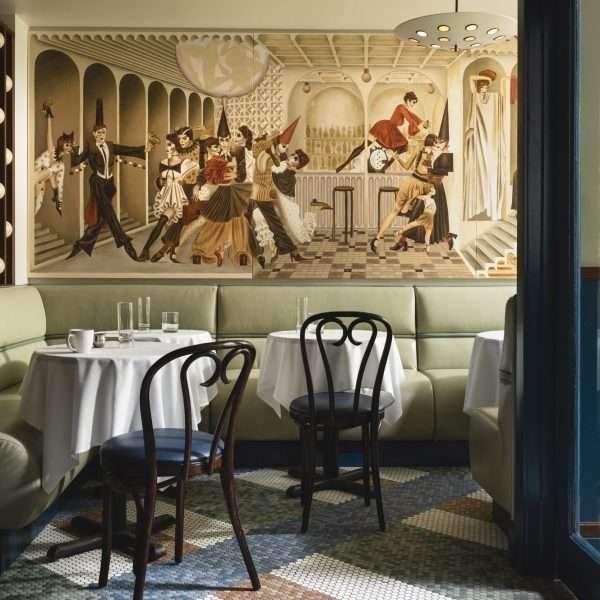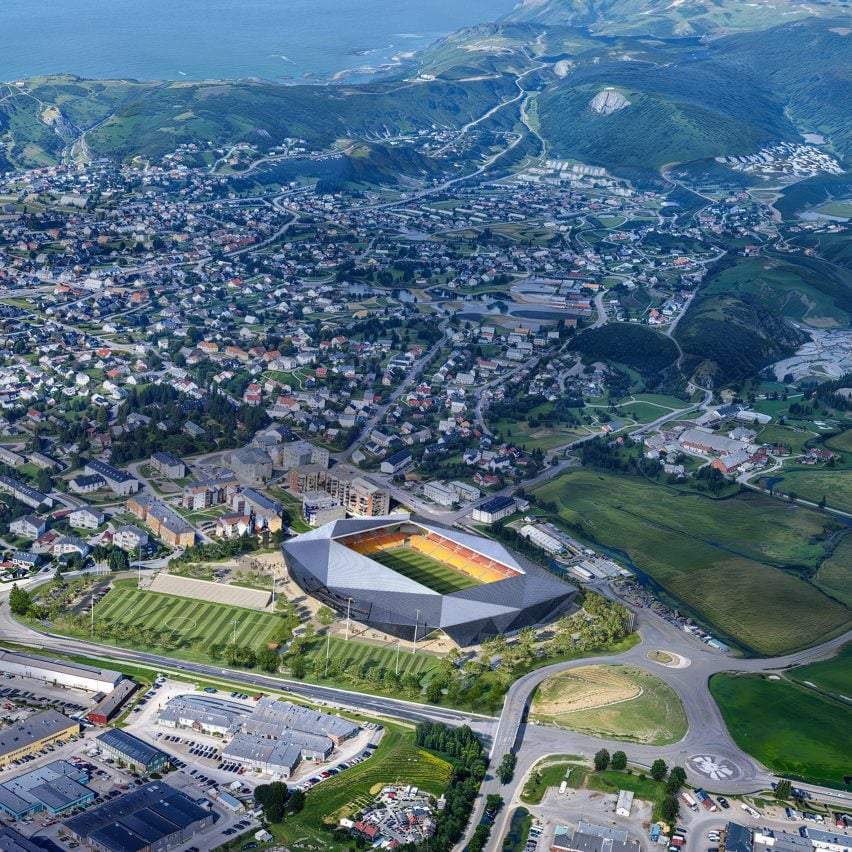Matsuri Paris: A Fusion of Japanese Minimalism and Californian Modernism by Designer Rudy Guénaire
French designer Rudy Guénaire has masterfully reimagined Matsuri, a Japanese restaurant in Paris, blending Japonisme with Californian modernism. Located in the city’s upscale 16th arrondissement, the 200-square-meter space features lacquer-covered wooden furniture, pastel-hued domes, and subtle nods to Frank Lloyd Wright’s architectural genius.
A Culinary and Aesthetic Journey: Japanese Sushi with a Californian Twist
Matsuri’s menu offers “Japanese sushi from a Californian angle,” and Guénaire’s interior design mirrors this fusion. Drawing inspiration from his love for both cultures, he crafted a space that feels both timeless and contemporary.
“I drew on everything that has marked me from these two countries that I adore,” said Guénaire, founder of Nightflight Studio.
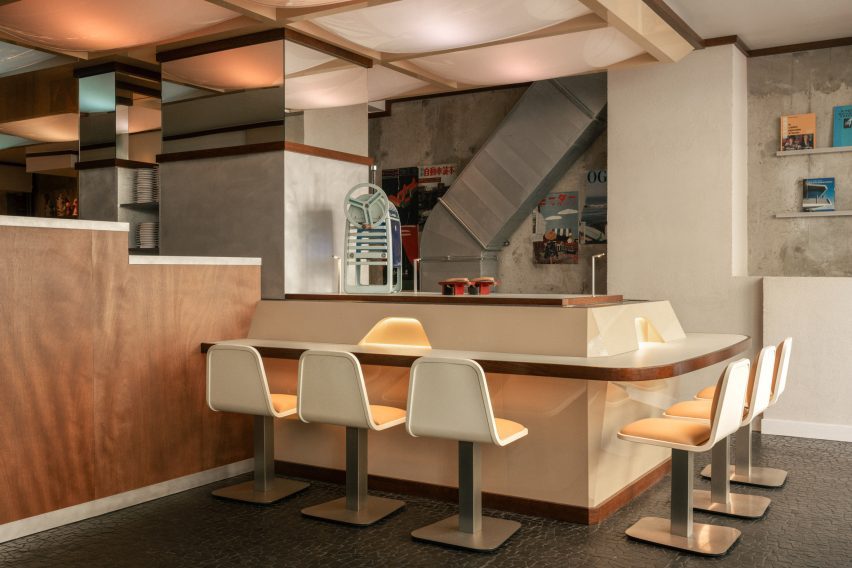
Japanese Influence: Framing Spaces with Deliberate Precision
One of the key Japanese design principles Guénaire incorporated is the concept of framing spaces as isolated, protected islands.
“From Japan, I took this idea that fascinates me—the Japanese frame everything. As if everything had to be an island, firmly delimited by something that protects it and makes it unique.”
This philosophy is evident in the restaurant’s wooden structures, meticulously lacquered to a high-gloss finish, reminiscent of traditional Japanese and Chinese lacquerware.
“The kaiten (conveyor belt) is covered in high-gloss lacquer, reminiscent of the beautiful lacquer worshipped by the Chinese and then the Japanese.”
Wood was a non-negotiable material for Guénaire, as it dominates traditional Japanese architecture.
“I used wood throughout because in Japan, everything is made of wood—that’s just the way it is and has to be!”
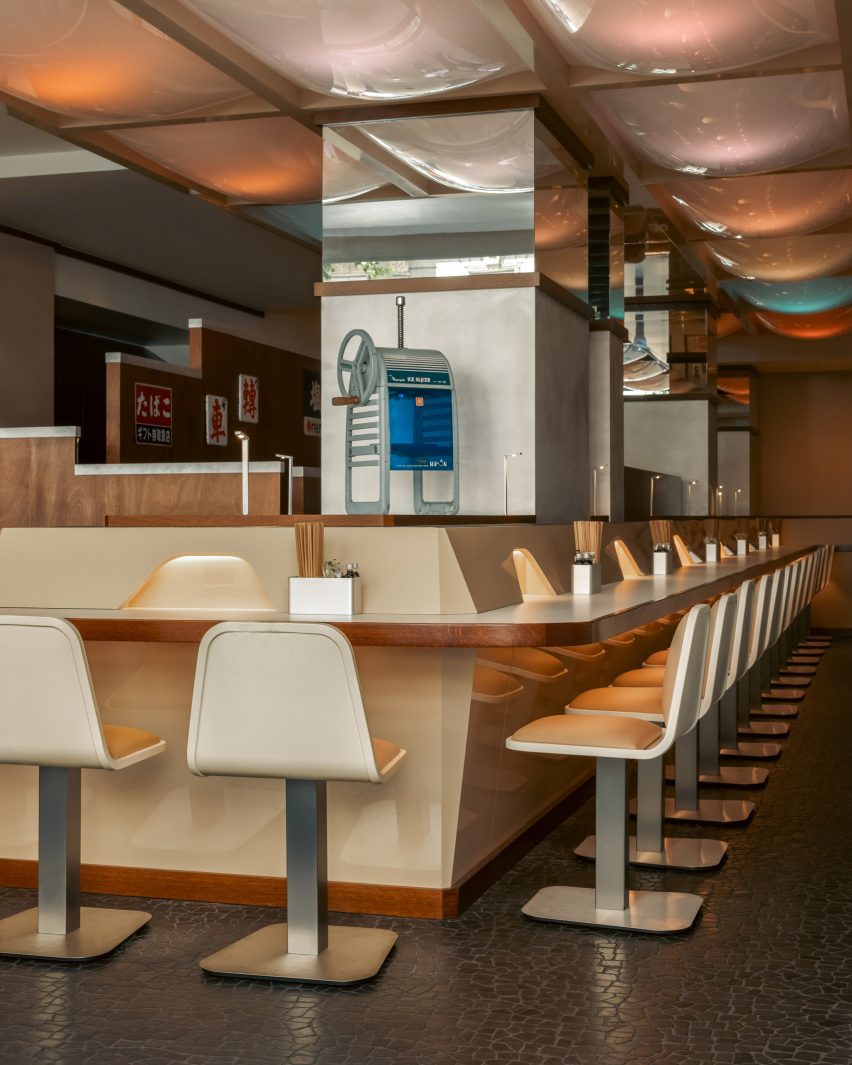
Californian Modernism: Sloping Forms and Playful Domes
The American influence shines through in the restaurant’s dynamic shapes and lighting. Guénaire was particularly inspired by Frank Lloyd Wright and John Lautner’s architectural styles.
“From California, I took these incredible obliques that make me melt—the kind you find in Frank Lloyd Wright or John Lautner’s work. A slant that recalls the Native American tent, the primordial shelter.”
The ceiling features pastel-colored domes, inspired by Wright’s Penfield House, which Guénaire reinterpreted using upside-down industrial skydomes lit from within.
“For the ceiling, I think I got the idea from the amazing ceiling of Frank Lloyd Wright’s Penfield House. We set up a sophisticated lighting system with very subtle color control.”
To maintain harmony with Japanese aesthetics, the colors were softened and desaturated, avoiding any garish tones.
“I chose cheerful, very American color bases, and then we subtly desaturated them to approach the Japanese aesthetic where nothing is ever loud.”
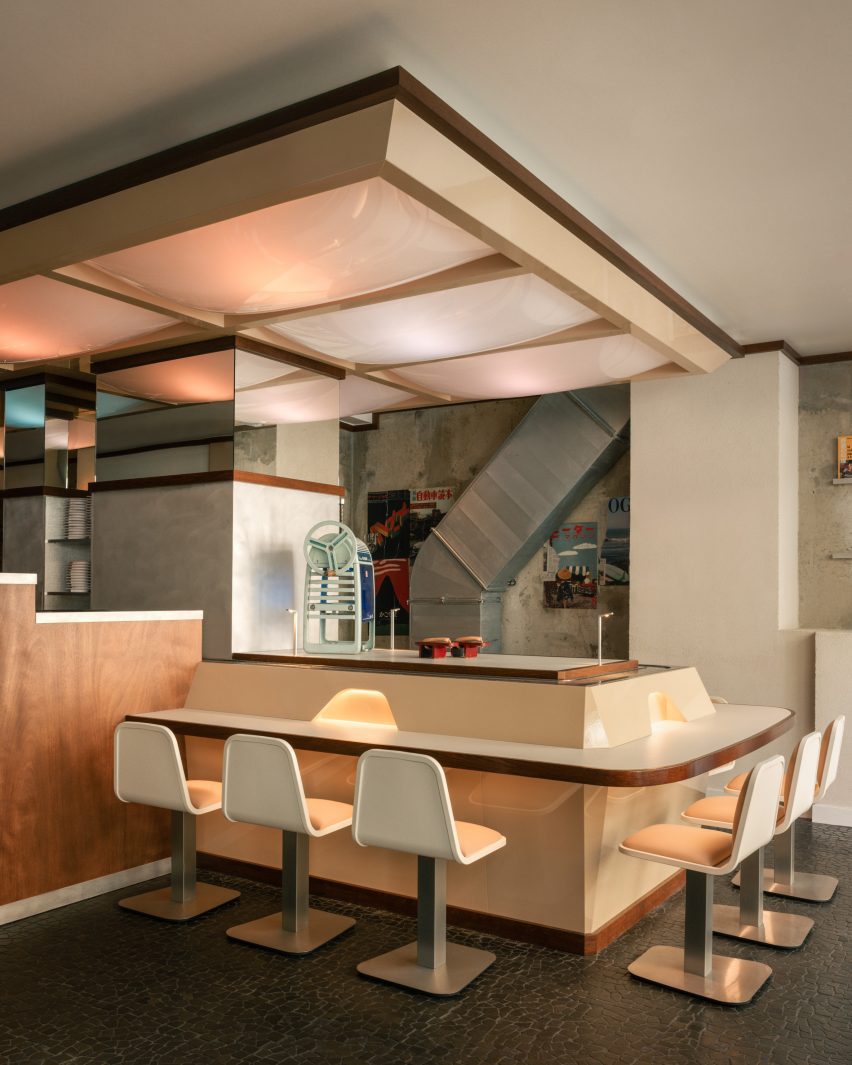
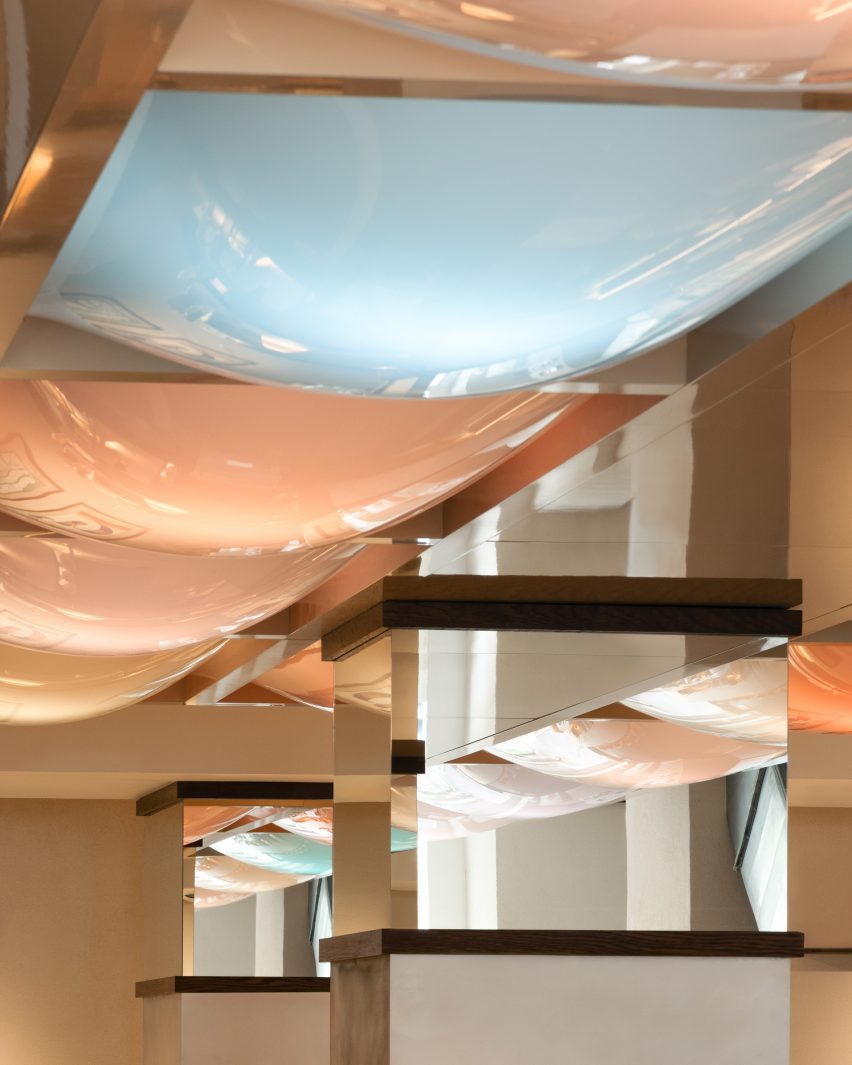
Designing the Perfect Izakaya-Inspired Seating
Guénaire also designed custom chairs for Matsuri, drawing from traditional izakayas (Japanese pubs)—though with a twist.
“While searching for photos of izakayas, I never found this chair shape. Yet, as I recall, it’s exactly this chair that I’ve seen everywhere—small and cute.”
This playful reinterpretation speaks to the essence of Japonisme—where memory and imagination blend.
“Maybe that’s what Japonism is all about. You invent a lot when you think you’re bringing back memories.”
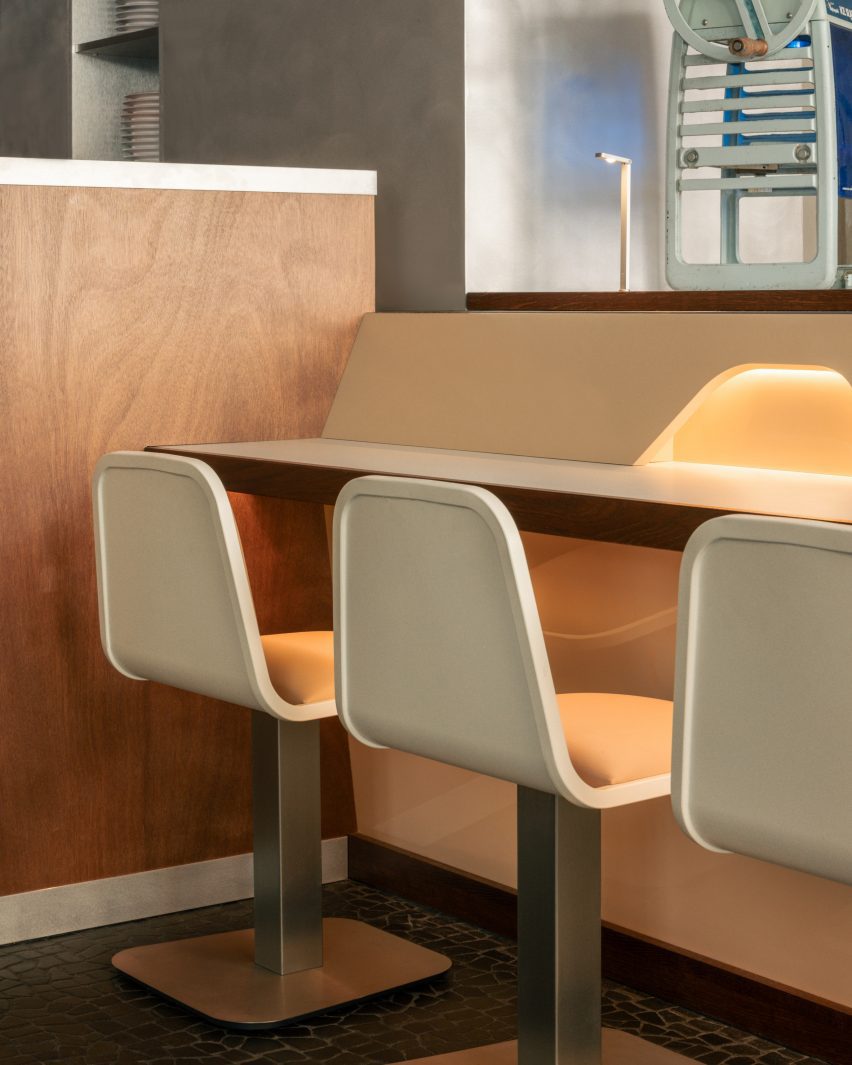
Authentic Touches: Vintage Japanese Posters
To enhance the restaurant’s authenticity, Guénaire decorated the space with vintage posters brought back from Japan.
“We always have friends coming back from Japan. We asked them for a little help!”
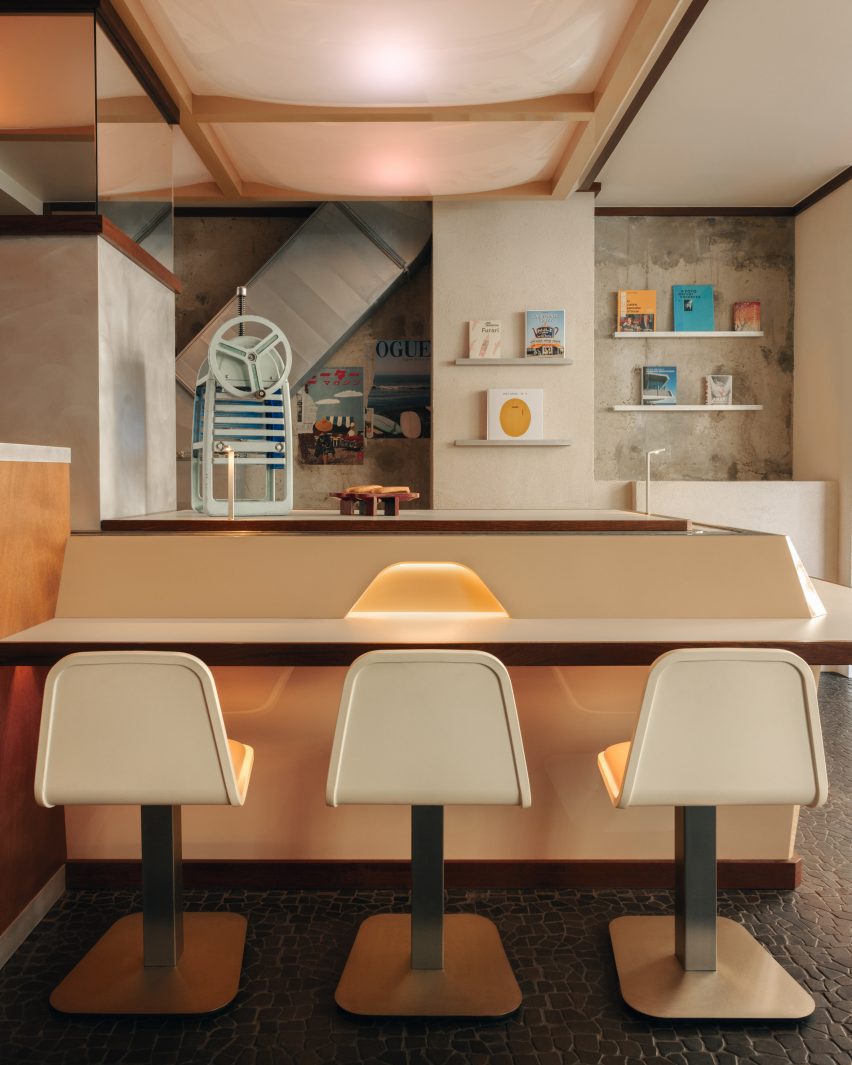
A Harmonious Blend of Two Worlds
Matsuri Paris is more than just a restaurant—it’s a design experience where Japanese tradition meets Californian modernism. Rudy Guénaire’s thoughtful approach ensures that every element, from the lacquered kaiten to the pastel domes, tells a story of cultural admiration and creative reinvention.
For design enthusiasts and food lovers alike, Matsuri offers a visually stunning and gastronomically delightful journey.
Catch up on the latest projects, trends, and bold ideas in the world of “architectural” content on ArchUp.



